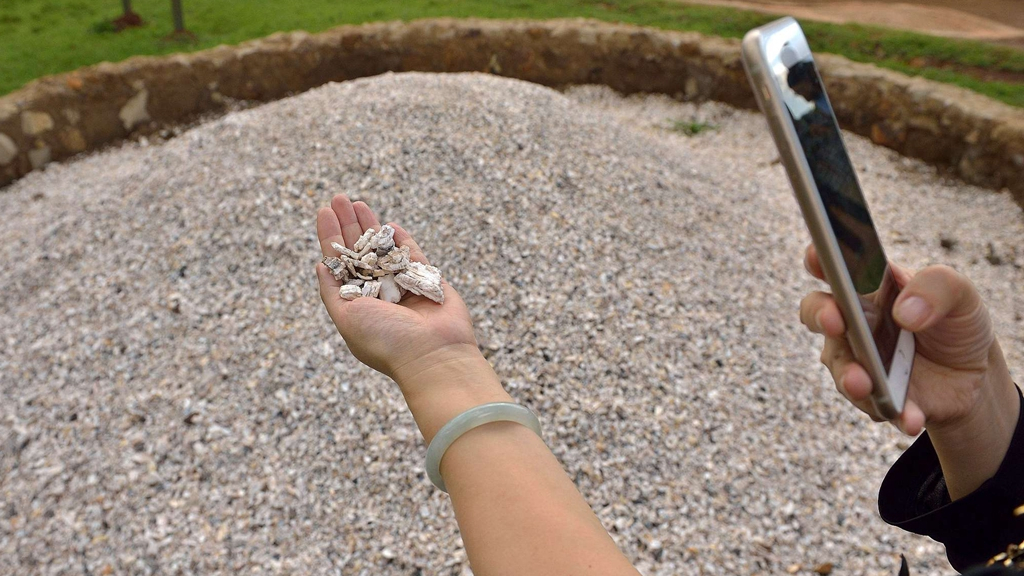
Tech & Sci
20:33, 03-Sep-2018
FOCAC: China-Africa cooperate on sustainable infrastructure, illegal wildlife trade
Updated
20:24, 06-Sep-2018
CGTN

Senior delegates from China and Africa highlighted the need for more collaboration to ensure minimum damage to the environment while developing mega infrastructure projects. They also discussed an enhanced monitoring system to combat illegal wildlife trade in African countries during a side-event at the 7th Ministerial Conference of the Forum on China-Africa Cooperation (FOCAC) on Sunday.
Some of the proposed major highways and railway lines in African countries would go through dense forests, which might affect wildlife. "In recent years, companies have adopted an environmentally friendly approach like constructing elevated roads and railway lines to ensure safe passage to wild animals," Xu Ling, acting chief of China's TRAFFIC office, told CGTN.
Experts at a "China-Africa Cooperation for Sustainable Development" event hosted jointly by World Wildlife Fund (WWF) and the Center for African Studies at Peking University recommended the need for creative solutions along with mandatory environmental clearance before initiating such mega projects.
Controlling illegal wildlife trade
During a presentation, officials from Chinese customs said they are always on high alert to trace the transport of endangered animal parts.
A recent TRAFFIC report revealed, altogether, ivory weighing 45,000 kg, more than 1,900 kg of rhino horns, and 131,564 reptiles were seized at various ports and airports between 2009 and 2017.
The data also revealed that the top six airports by seizure count are located in four countries -- China, Vietnam, Thailand, and Malaysia.
In recent months, Chinese authorities are sending Short Message Service alerts to Chinese tourists visiting Southeast Asia regarding the ban on wildlife products. Non-profit organizations are also extensively advertising in various airports, railway stations and other exit points about the ban.
China is also planning to involve private tour operators to raise awareness about wildlife protection among domestic and international tourists. Delegates held that similar steps should be initiated globally.
"Public commitment from both sides in 2015 made encouraging steps to address wildlife crime and the profound impacts it has on many sections of society," said Dr. Taye Teferi, TRAFFIC's Policy and Partnership Co-coordinator for Africa.
"But the bottom line remains: further effort is needed to catalyze measurable change on the ground in Africa. TRAFFIC hopes meeting will result in fresh impetus and identify available technical and financial resources to address effectively these persistent threats to Africa's people and its wild biodiversity and secure the long-term benefits of its natural resources."
Bridging the gap through collaboration
However, China's ongoing crackdown on wildlife trade, according to wildlife experts, is not enough to protect endangered animals in Africa from poaching.
"China has already banned the domestic trade of ivory and rhino horns, but laws in many African countries are not stringent enough to control this illegal trade," Xu added. "African countries and China need to work together to prevent illegal wildlife trade."
Wildlife experts called for more capacity building programs from African wildlife rangers and customs department to control both poaching and trade.
During the 2015 FOCAC summit and meeting held in South Africa, the Johannesburg Action Plan (2016-2018) was adopted. The meeting culminated in commitments by China and 50 African member states to work jointly to combat illegal trade of fauna and flora products and to collaborate on sustainable forest and fisheries management.
"Clearly, there are major opportunities to support sustainable development in African countries through Chinese investment and mutual cooperation between FOCAC partners to ensure compliance with legal and sustainable trade regulations," Xu added.
(Cover Image: A Chinese wildlife ambassador takes a photo with her smartphone of charred ivory pieces on November 11, 2015, at the Nairobi National Park, the site of a historic first-burning of tonnes of ivory stockpiles from poached elephants 26 years ago. /VCG Photo)

SITEMAP
Copyright © 2018 CGTN. Beijing ICP prepared NO.16065310-3
Copyright © 2018 CGTN. Beijing ICP prepared NO.16065310-3